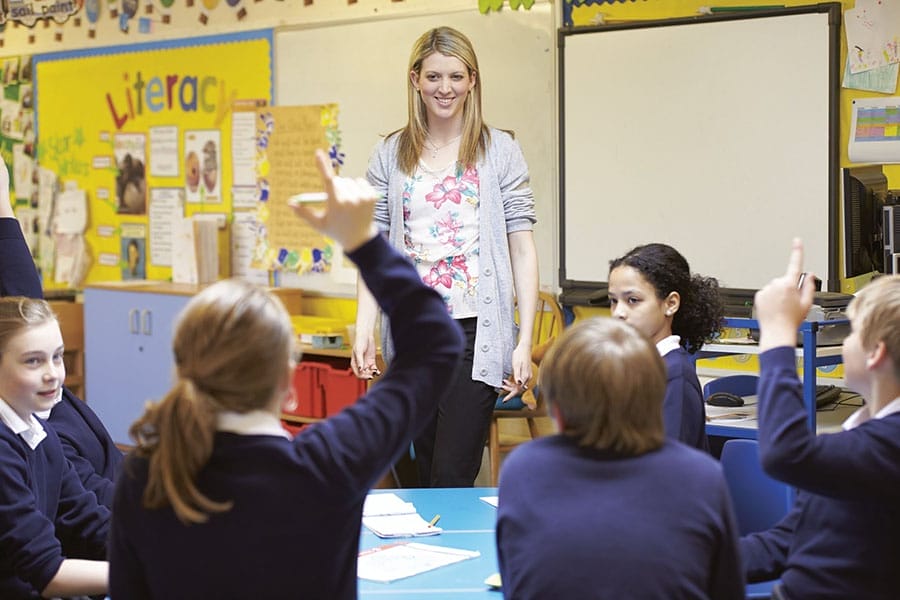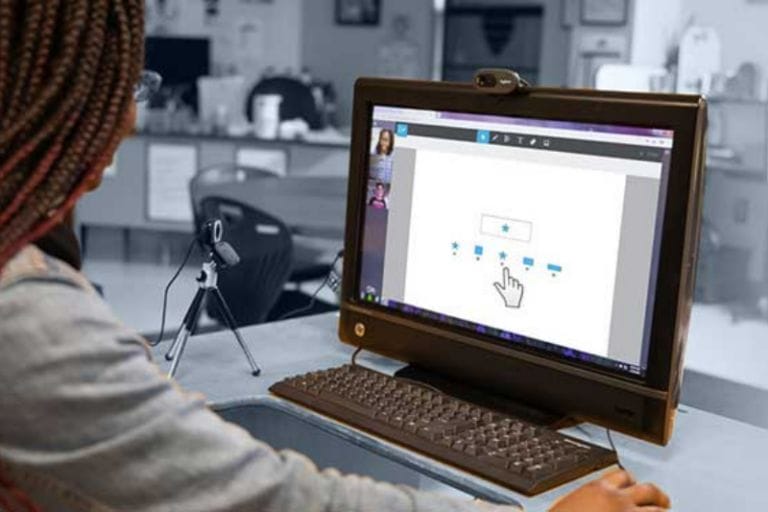
The Breakthrough Study
It used to be that, in traditional cultures around the world, parents would avoid praise. They were concerned that excessive praise would inflate the ego, making their children overconfident. But today, things have changed dramatically.
There is a growing body of research that finds praise can be an effective way for parents, educators, and therapists to incentivize better behavior and improve student focus as well as academic and clinical performance. This is particularly true when the praise is delivered carefully.
Teachers who used more praise and fewer reprimands in the classroom found that their students were able to remain on task and behave better, according to a 2019 study. Researchers who conducted the study, published in the journal Educational Psychology, found a direct and “positive linear relationship” between the two.
Paul Caldarella, a professor of counseling psychology and special education at Brigham Young University and the leader of the study, had this to say: “The higher the teachers’ [praise to reprimand ratio], the higher the students’ on-task behavior percentage.”
Caution: Deliver Praise Carefully
Alfie Kohn, who writes and speaks widely on human behavior, education and parenting, and is the author of fourteen books, points to the research that shows praise can be counterproductive as well, by undermining the intrinsic motivation to accomplish; instead, it is encouraging people to work for praise itself.
According to some, praising children for practically anything is essentially a “verbal doggie biscuit for pleasing the adult.” Because, while we may not realize it, children themselves often consider unearned praise as nothing more than veiled manipulation.
Praise is destined to fail if it isn’t done well. So before you praise the child, it is essential to know what not to do. These tips will guide you in that critical effort:
The 5 Secrets of Effective Praise
1. Praise Should Be Specific
Link praise with specific observable feedback. Your feedback should include a description of the accomplishment or behavior that you’d like to reinforce. “Even when you had a difficult time pronouncing the “r” sound, you didn’t give up. I saw you continue to try over and over again until you got it right! Great work!”
Giving general praise alone should be avoided. While saying “great job” or “nice work” sounds positive, it fails to give your students specific feedback about what was great. You will increase the likelihood of that accomplishment or behavior reoccurring by coupling general praise with specific, observable feedback.
2. Praise Must Be Genuine & Credible
Assure your praise is genuine for authentic accomplishments or progress by a student. And be careful that it is never excessive. Care in these areas will help ensure the quality and credibility of your praise. Your praise should empower students to understand that you have assessed their accomplishments and are convinced they deserve your praise.
Praising mediocre effort excessively will not increase the likelihood that children will work harder in the future. In fact, it can have the opposite effect by indirectly conveying the message to them that praise is meaningless.
Furthermore, praise should never be used as a way of manipulating students or controlling them. Abusing praise can trigger bad feelings from children and be detrimental to their self-esteem.
3. Praise Must Be Individualized
Avoid praise that compares your student to others. At first glance, it might seem like a great idea to praise kids for out-performing their peers. After all, research has shown that such social-comparison praise will enhance a child’s motivation and enjoyment of a task.
But there are at least two big problems with social-comparison praise:
1. Social-comparison praise will only motivate as long as kids continue to finish on top. Once their competitive edge slips, motivation will sink as well. What’s more, you are teaching these children by way of social-comparison praise to become poor losers.
2. Social-comparison praise instills in children that what is valuable is competitive standing, not mastery. When a child’s goal is to outperform other kids, he lacks intrinsic motivation for a task. Work is only important insofar as it permits him to show that he is the best.
4. Praise Efforts and Progress, Not Ability
Focus your praise for children on things they can control such as the effort invested in their accomplishment, not for having been gifted with special abilities. Praises such as, “You’re so smart!” or “You’ve got talent!” might seem calculated to boost self-esteem and increase a child’s motivation.
And it might even work that way sometimes.
But research suggests that this kind of praise often backfires because kids will invariably become stressed about maintaining a high standard. Carol Dweck and her colleagues have demonstrated the effect of such praise in a series of experimental studies.
In addition, praising kids for their ability causes them to become more cautious and avoid challenges. They get the message that, regarding intelligence or talent, either you have it or you don’t. The result is that kids feel helpless when they make mistakes. Why try to improve if your mistakes indicate that you don’t have the capacity to do otherwise?
5. The Art of How to Praise
Praise should be simple and direct using your natural voice, not theatrical or intrusive which may result in embarrassing the student. And it doesn’t necessarily need to be spoken; you can use nonverbal messages such as a smile, appreciative tone, or a pat on the back.
If done verbally, teachers and therapists have the option to deliver praise to a student in any number of ways and contexts. The praise could either be given publicly in front of other students or in a private conversation, or even in a note on the student’s test or assignment.
Whenever possible, the therapist or teacher should abide by a student’s preference as to how to receive the praise. It happens to be that, while most children in elementary school are okay with public praise, students upon entering middle school and high school prefer it to be done privately.
It’s about Much More Than Praise
Remember that the children you serve need your support and encouragement all the time, not just when they’ve done something praiseworthy. But praise, while certainly beneficial, isn’t the only way that therapists communicate their approval, acceptance, encouragement, and concern to their students.
Kids need to know that they always have their therapist’s support — especially when they are feeling lost, angry, or overwhelmed. So, aside from praise, keep the big picture in mind: the overall warmth and supportiveness of your therapeutic alliance. And be sure to encourage your students when they’ve failed, not just when they’ve succeeded!




